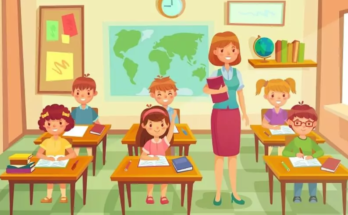Introduction:
Science education for young learners lays the foundation for understanding the natural world, developing critical thinking skills, and cultivating a lifelong curiosity about science. In this guide, we’ll delve into the importance of science education for young children and explore effective strategies for engaging them in hands-on exploration, inquiry-based learning, and scientific discovery.
Importance of Early Science Education:
Early science education is crucial for fostering children’s natural curiosity, promoting exploration, and building foundational science concepts. Young children are natural scientists, eager to explore their surroundings, ask questions, and make sense of the world. Science education provides opportunities for children to observe, investigate, experiment, and communicate their findings, laying the groundwork for future scientific inquiry and discovery.

Hands-On Exploration:
Hands-on exploration is at the heart of effective science education for young learners. Providing children with opportunities to engage in hands-on activities, experiments, and investigations allows them to actively construct their understanding of scientific concepts. Science centers, nature walks, sensory experiences, and outdoor exploration provide rich opportunities for children to observe, manipulate materials, and make discoveries through firsthand experiences.
Inquiry-Based Learning:
Inquiry-based learning encourages children to ask questions, explore phenomena, and seek solutions through investigation and discovery. Teachers facilitate inquiry-based learning by posing open-ended questions, encouraging curiosity, and providing opportunities for children to explore and investigate scientific concepts independently or collaboratively. Through inquiry-based learning, children develop critical thinking skills, problem-solving abilities, and a deeper understanding of scientific principles.
Integration with Other Subjects:
Science education is inherently interdisciplinary, providing opportunities for integrating science concepts with other subjects such as mathematics, language arts, and social studies. Cross-curricular connections enrich children’s learning experiences and deepen their understanding of how science relates to their everyday lives. Integrating science into literature, art, music, and dramatic play activities engages children in meaningful and authentic learning experiences that promote holistic development.
STEM Education:
STEM (Science, Technology, Engineering, and Mathematics) education integrates science concepts with other disciplines to foster creativity, innovation, and problem-solving skills. STEM activities and projects encourage children to apply scientific knowledge to design solutions, build models, and solve real-world problems. Through hands-on STEM experiences, children develop critical thinking, collaboration, and communication skills essential for success in the 21st century.
Promoting Scientific Inquiry and Literacy:
Promoting scientific inquiry and literacy involves providing children with opportunities to ask questions, make predictions, conduct investigations, and communicate their findings using scientific language and vocabulary. Teachers support scientific inquiry and literacy by modeling scientific processes, providing guidance and feedback, and creating a supportive learning environment where children feel encouraged to explore and experiment.
Conclusion:
In conclusion, science education for young learners plays a crucial role in nurturing curiosity, fostering inquiry, and developing foundational science concepts. By providing hands-on exploration, inquiry-based learning, interdisciplinary connections, STEM integration, and opportunities for scientific inquiry and literacy, educators can inspire young children to become lifelong learners and future scientists. Together, we can cultivate a generation of curious and scientifically literate individuals who are empowered to understand, appreciate, and contribute to the world around them. Thank you for joining us on this exploration of science education for young learners.




